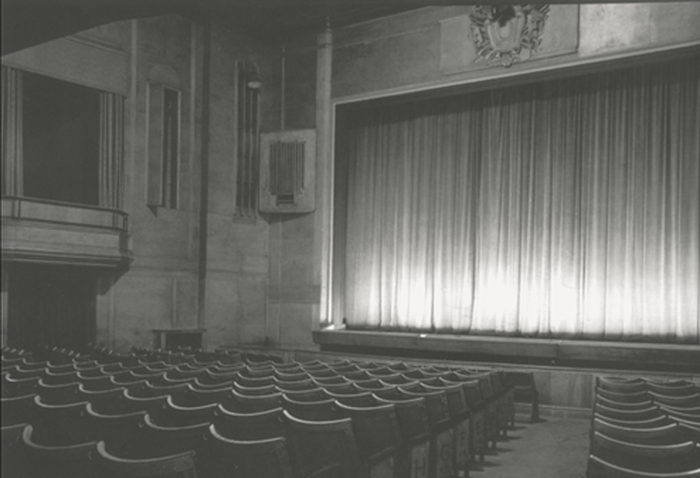Much Ado About bad weather: an exploration into open-air Shakespeare
Iona Boyer and Poppy Gibbs chart the history of ecological interaction in outdoor Shakespeare

A core part of May Week, outdoor performances of Shakespeare are more than just a wholesome summer activity. In A Midsummer Night’s Dream, Peter Quince declares to his company: “this green plot shall be our stage, this hawthorn brake our tiring-house.” The carpenter transposes the traditional stage onto the natural world, forcing a space of characteristic mutability and openness into the constraints of the human-made theatre. But for amateur companies, like Quince’s Rude Mechanicals and those who annually crawl out of the library woodwork to grace Cambridge’s many lawns, the outdoor stage has long been an accessible world of possibilities, without constraint. Outdoor theatre is innately eco-conscious, a means of reconnecting with our natural surroundings.
“The outdoor stage has long been an accessible world of possibilities”
Nowadays, Shakespeare’s plays can be found across the country in summer-laden fields, woods, and gardens; spaces made for the Bard. The word “wood” (think of Trinity Fellows’ Garden) has an obsolete sense of “going mad”. Nature is a space of disjointed reality, harbouring magic and fairies – characters like Titania and Ariel slip easily into its setting. Indeed, a moment from Neil Gaiman’s Sandman sees Shakespeare’s company perform A Midsummer Night’s Dream to the fairies he narrativises in his play, using Sussex’s Long Man of Wilmington as a doorway between worlds. Theatrical history also suggests Midsummer lends itself to outside staging. Standing as examples include a 1929 production, fabulously costumed by the Minack’s own Rowena Cade; the 1909 film, an absolute blast and currently on YouTube; and the Queens’ College production in May Week. These only begin to chart the history of Shakespeare in nature.
Earlier this term, I played Kate in Maisie Johnson’s production of The Taming of the Shrew. Far from filling its stage with woodland fairies, it remained a collaboration with nature. In the spirit of a long Cambridge tradition, this Shrew was staged in the Corpus Christi Fellows’ Garden. We were originally meant to perform in Old Court at the end of Lent term, but time constraints and a fear of drowning ourselves and the audience in bad weather pushed it back. How naive we were! In the end, it rained (heavily) for three nights of our run. As cracks of thunder pierced the idyll of otherwise warm and sunny days, we all furrowed concerned brows and let out groans anticipating hours of drenched clothes, clinging hair and inaudible cue lines. But, strangely (to myself most of all), I wouldn’t bemoan the turbulent weather.
“Cracks of thunder pierced the idyll of otherwise warm and sunny days”
On the first night, near-torrential rain more fitting for King Lear or The Tempest helped smooth over mistakes and assuage the nerves of all but our director – anything that went wrong could be put down to the weather. On the second night, it made the cupcakes soggy enough to explode dramatically as I threw them at any character espousing anti-Kate propaganda. It also added a sense of interactive irony. We actors could play with a new duality of perception: the theatrical illusion of the play-world was stormily intruded on by the actual world and its meteorological unpredictability. We improvised jokes, like saying “sunny” before any mention of Padua. Joe Wolffe, our Petruchio, planned on pointing at the sky and waiting expectedly every time he said the word “thunder”. I’d like to hope the timing worked out, injecting a glimmer of magic into a primarily domestic and human play. As Kate proclaimed: “husband, let’s hear the end of this ado,” thunder growled menacingly overhead – the clouds had choreographed themselves into the play. Whether the gods favoured Kate’s eventual victory or were affronted that our glorious performances were about to end, a mortal mind like mine can never know.
Yet there is always a contradiction inherent to outdoor productions, especially in Cambridge. On the final night of Shrew, a tarpaulin miraculously appeared at interval, and I suggested throwing it over the garden’s trellis to shelter the audience. I was met with immediate dissent. “We couldn’t possibly damage the wisteria!” was the desperate cry. The preservation of the meticulously curated garden was instinctively prioritised – taking precedence over potential hypothermia – in a move indicative of the unnatural elements of open-air theatre. Our lawns, gardens, and “deer parks” are barred off from true wilderness by medieval walls and opulent chapels. Our trees – the mulberry in the Fellows’ Garden almost as old as the play – are held up by steel poles. I believe this is where the co-conspirators of our cast and the weather brought out the spirit of outdoor theatre. The constant traffic of players dug up rivulets of mud, upsetting the pristinely cut grass. I delighted in trudging about barefoot in this muddy mayhem. As our play literally stuck its feet into nature, it engendered an awareness of performance’s ecological and transformational possibilities. Ultimately, even the wisteria lost its primness, incorporated into a stage of spindling trees, pools of mud, and grapes squashed underfoot.
 Comment / Cambridge’s tourism risks commodifying students18 April 2025
Comment / Cambridge’s tourism risks commodifying students18 April 2025 News / Cambridge student numbers fall amid nationwide decline14 April 2025
News / Cambridge student numbers fall amid nationwide decline14 April 2025 News / Greenwich House occupiers miss deadline to respond to University legal action15 April 2025
News / Greenwich House occupiers miss deadline to respond to University legal action15 April 2025 Comment / The Cambridge workload prioritises quantity over quality 16 April 2025
Comment / The Cambridge workload prioritises quantity over quality 16 April 2025 Sport / Cambridge celebrate clean sweep at Boat Race 202514 April 2025
Sport / Cambridge celebrate clean sweep at Boat Race 202514 April 2025





